Welcome to On Verticality. This blog explores the innate human need to escape the surface of the earth, and our struggles to do so throughout history. If you’re new here, a good place to start is the Theory of Verticality section or the Introduction to Verticality. If you want to receive updates on what’s new with the blog, you can use the Subscribe page to sign up. Thanks for visiting!
Click to filter posts by the three main subjects for the blog : Architecture, Flight and Mountains.
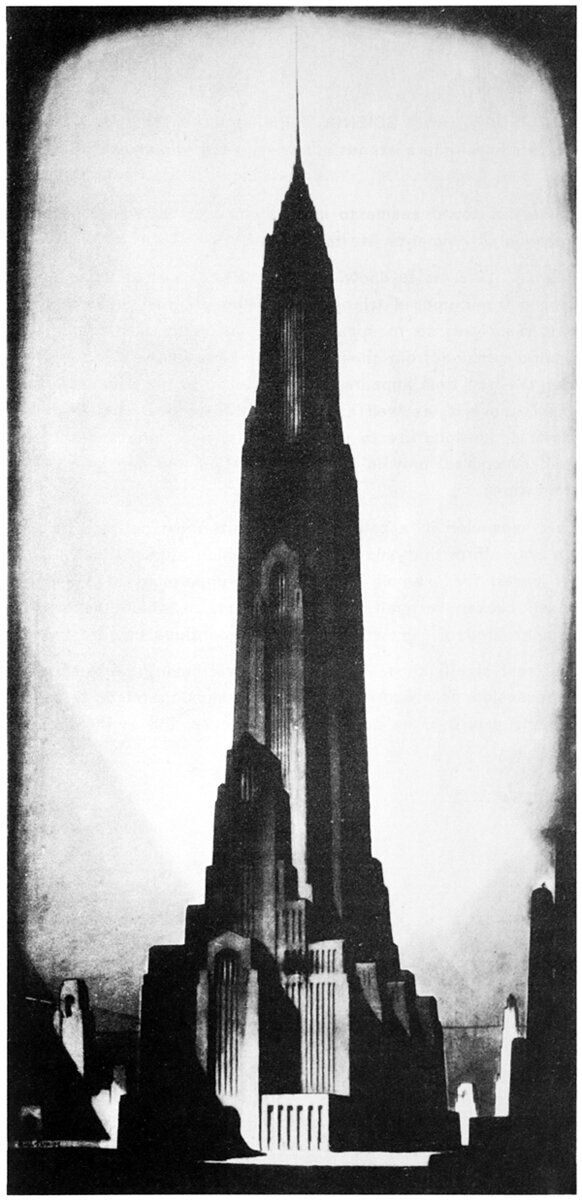
Hugh Ferriss and Religion on the Skyline
Hugh Ferriss was an architect and illustrator, best known for his charcoal renderings of skyscrapers in the first half of the 20th century. Pictured here is an illustration from his 1929 work The Metropolis of Tomorrow, titled Religion. This image and the underlying thought behind it’s creation ties into a larger trend around this time that saw religious structures attempt to re-take the skyline from commerce.
“You can tell what’s informing a society by what the tallest building is ... when you approach a modern city, the tallest places are the office buildings, the centres of economic life."
-Joseph Campbell, American literature professor and author, 1904-1987
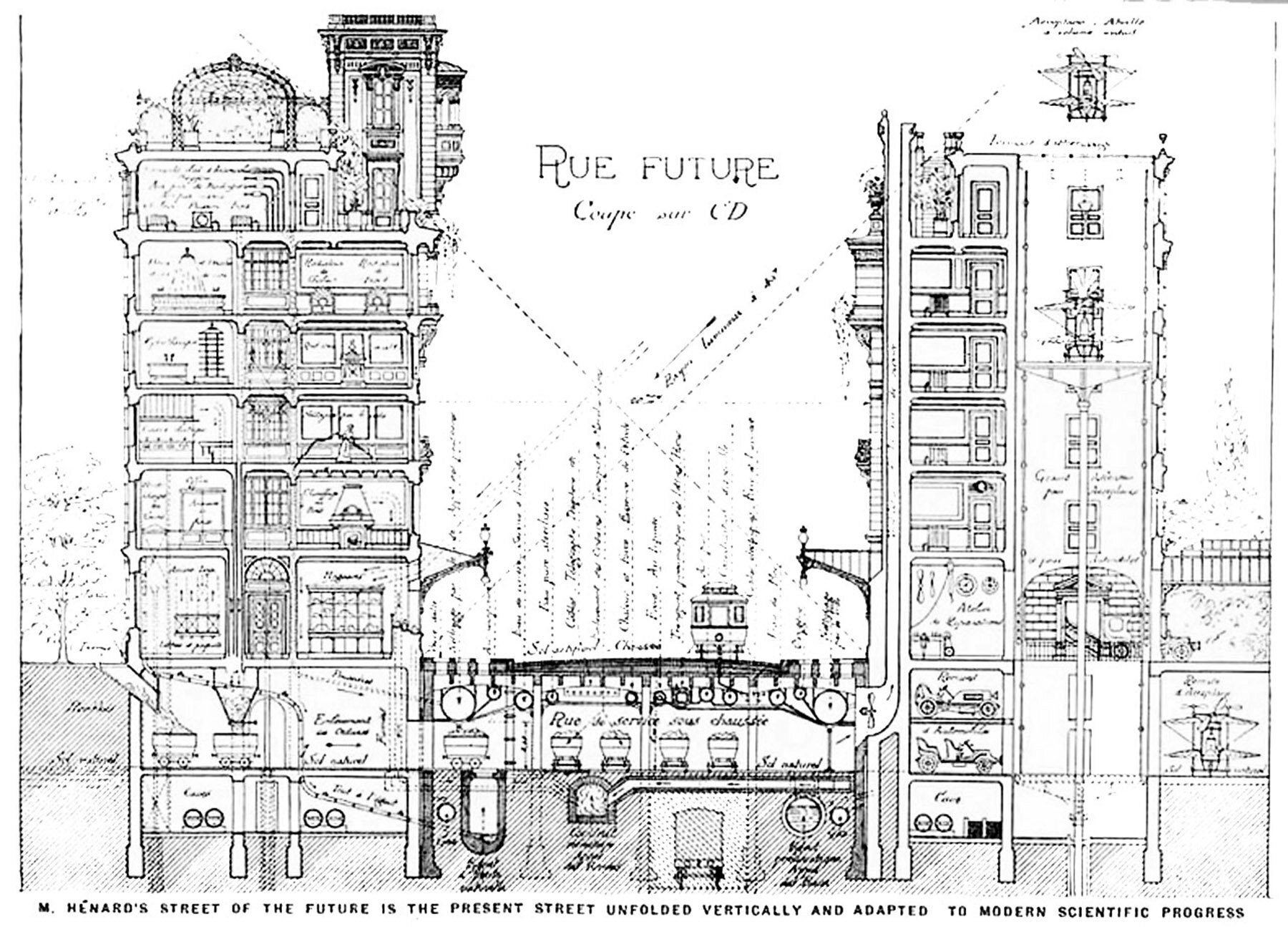
Cities of the Future from the Past
It's always interesting to see how previous generations viewed the future of their cities. In particular, the early 20th century was a hotbed for this type of thinking due to the emergence of the skyscraper as a building type.
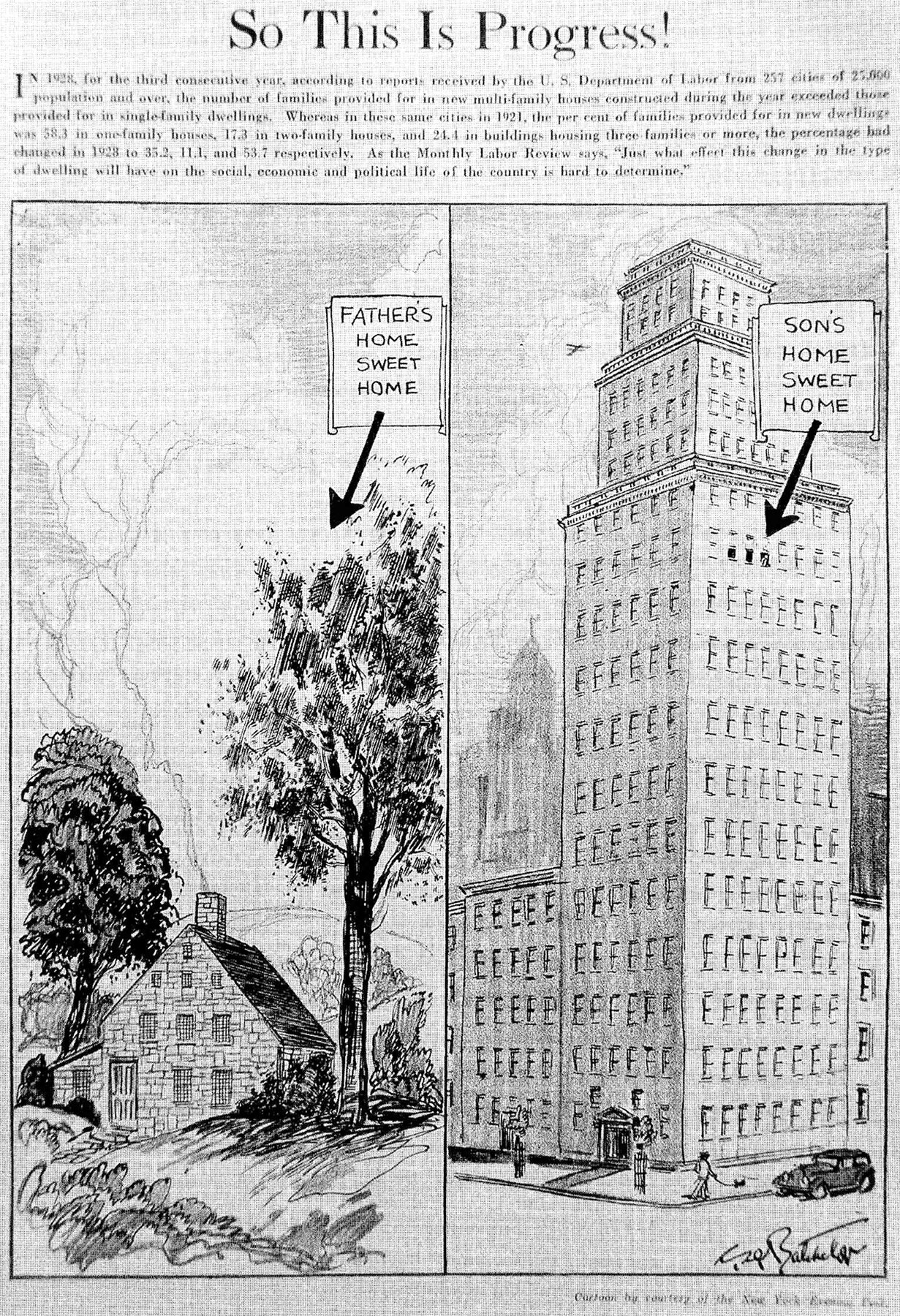
Anecdotes : A Tale of Two Apartments
Over the past few years, I've had two very different living experiences. The first, a 48th floor apartment in the Financial District of New York City. The second, a first floor flat in Park Slope, Brooklyn. I loved living in each of these apartments immensely, but the differences between the two have taught me a great deal about Verticality and its effects on our lives.
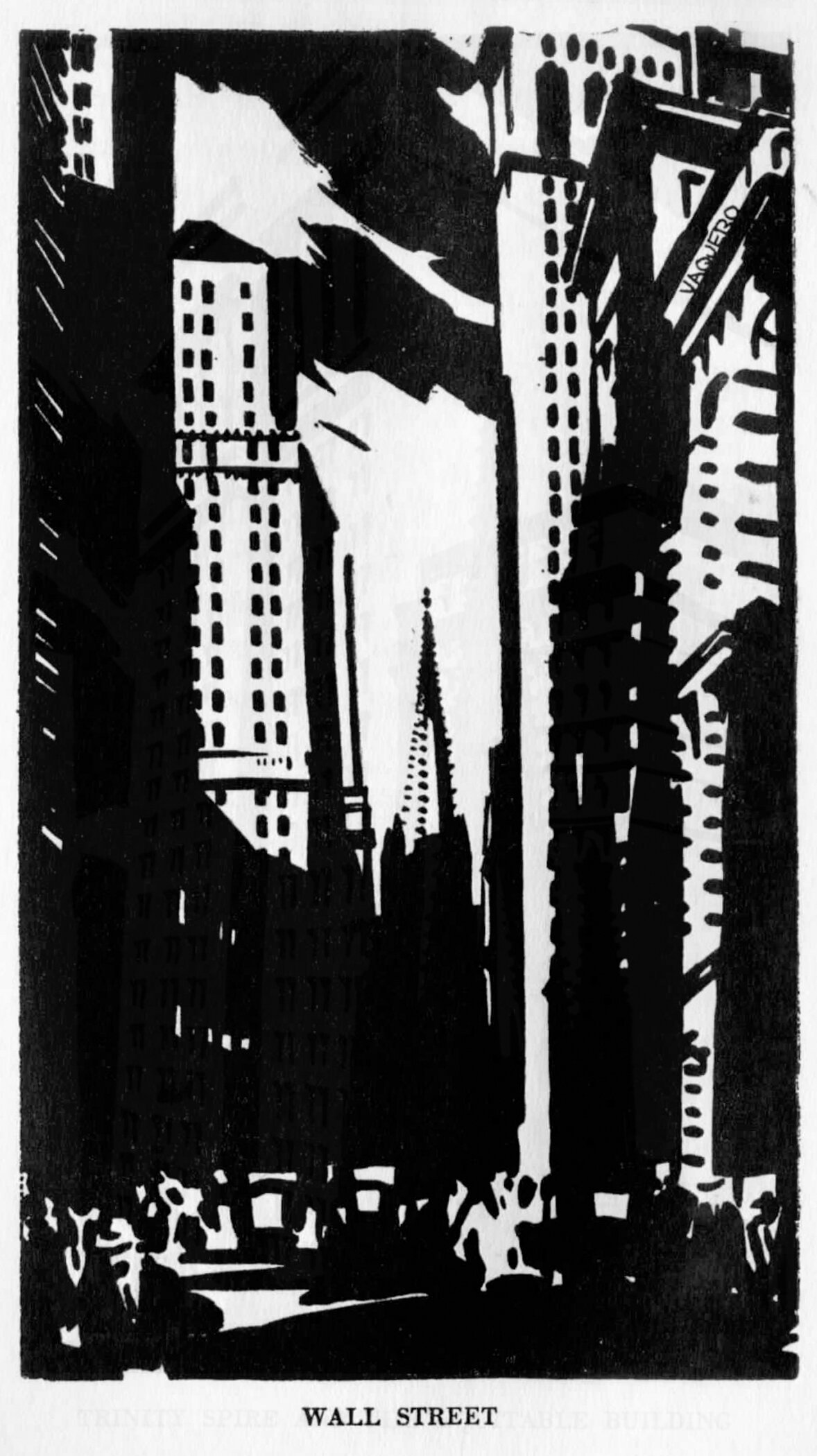
Trinity Church and The Contemporary Dwarfing of Historic Structures
Height in the built environment is relative. A tall building at the center of a major city today is quite a different idea than a tall building was a hundred years ago. As a city grows, taller buildings will get built throughout time, and the meaning of tall gets taller with them. Buildings once considered tall get overshadowed by more contemporary structures.
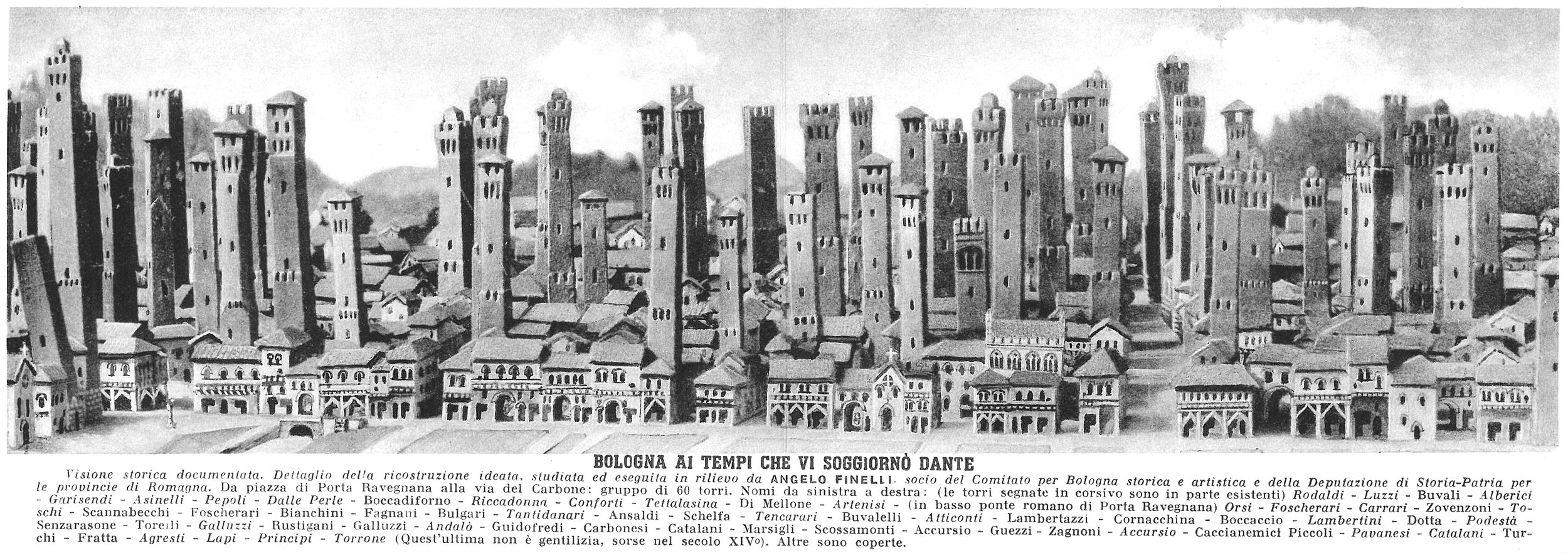
Bologna Rising
Here's a forest of towers in the Italian town Bologna, from the early 20th century. These towers were built as extensions of private homes for wealthy families. Their exact purpose isn't quite clear, but most likely it was a combination of status symbols and as means of defense during uncertain times. The image is quite compelling, with the forest of needle-like towers poking out above the lower buildings of the town below.
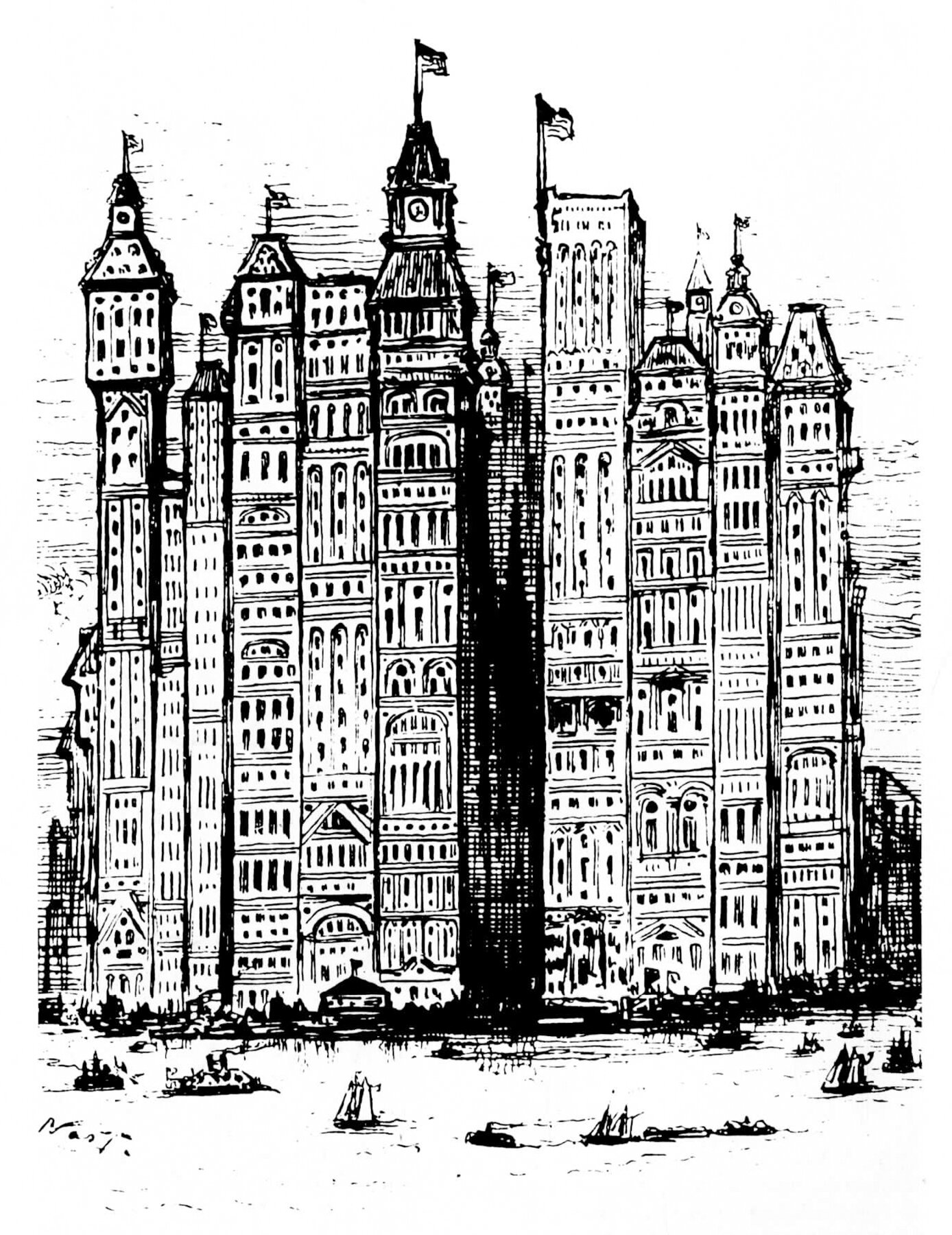
Skylines As Value Indicators
Take a look at this 1881 Cartoon by Thomas Nast for Harper’s Weekly titled New York A Few Years from Now. Nast shows the southern tip of Manhattan Island, jam-packed with a phalanx of skyscrapers. The buildings are pushed so close together it’s hard to imagine where the streets are. Back in the shadows, you can just make out the spire of Trinity Church, which at the time was the tallest building in the country. Nast is being hyperbolic, of course, but the reality of most modern cities isn't far off.
